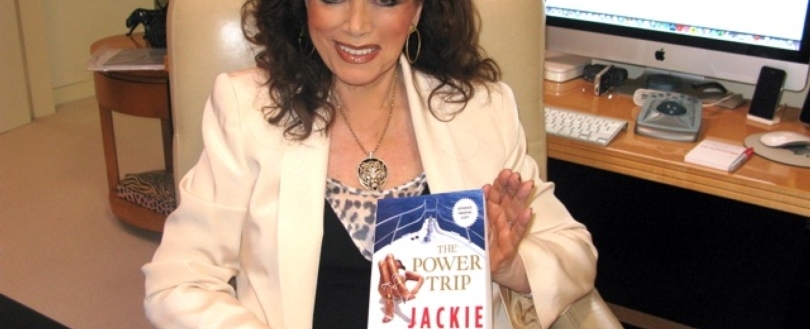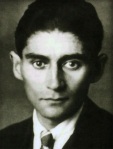- Homepage
- News
- Blogs & Articles
- Jackie Collins Existential Question Time

Jackie Collins Existential Question Time
Like it? Share it!
25 April 2014 by FIA Team, FIA Team
The Commercial Union claimed back in the 1980s that they ‘won’t make a drama out of a crisis’ which is a useful rule to follow in life given its sentiment is to deal effectively with a potentially catastrophic event and prevent its consequences from stretching to infinity. The CU was actually inaugurated back in 1861 following the Great Tooley Street fire in London which destroyed many warehouses and wharves along the Thames, with the existing insurance companies raising their rates and leading to local traders forming their own company. It merged with Norwich Union in 2000 to form the awkwardly-monikered CGNU before being renamed Aviva. We now have to put up with advertisements featuring Paul Whitehouse sending his comedic career on a downward trajectory by playing a series of unfunny idiots including a Welsh Goth, a Scottish ballroom dancer and someone who wanders around with a metal detector.
On the subject [just about] of acting, the longest dramatic performance according to the Guinness Book of Records is barely shy of a whole day and was a performance in 2010 of Ionesco’s ‘The Bald Soprano’ which is actually only a one-hour play but was repeated 24 times with the actors swapping roles. The audience were throwing toupees onto the stage long before the end. The Ensemble Theatre of Chattanooga has since beaten that in October last year with a 30 hour performance, oddly of the same looped play, so if you go to the theatre and you are advised of a long running time with no intervals, expect to see ’The Bald Soprano’ many times over.
If you’re looking for the longest single play, you may alight on ‘The Warp’ by Neil Oram which is a bum-numbing 22 hours but is actually a 10 play cycle performed continuously. We may have to end our search there, however, as no-one seems to have as definitive answer on what really is the longest theatre piece. As for the lengthiest continuous run of a play, it’s no surprise to find it’s ‘The Mousetrap’ which premiered in Nottingham in 1952 before starting a 22 year run at the Ambassadors in London and then on to St Martins where it continues to waste a perfectly good theatre. If you want to be difficult, you can claim it’s not an uninterrupted run as at the time of the transfer from the Ambassadors to St Martins, there was no performance on Sunday 24th March 1974.
There are, thankfully, shorter plays around and these include Samuel Beckett’s ‘Breath’ which the playwright indicates should run for about 25 seconds and which comprises breathing sounds bookended by birth cries and with the stage empty but for scattered rubbish. Its UK premier was in Glasgow in 1969, a tough crowd at the best of times and one that is renowned for leaving no turn un-stoned. I did attempt to see the play once myself but having dropped the little plastic spoon that came with my ginger and honey Loseleys ice cream, I scrabbled under the seat for it and missed the whole thing.
It’s perhaps no great surprise that the world’s longest and shortest performances by Ionesco and Beckett respectively come from the branch of drama termed the ‘theatre of the absurd’ which, according to Martin Esslin who coined the phrase, examines human reaction to a world devoid of meaning and controlled by hidden outside forces. This links to existentialism which takes the individual as its starting point and explores their position in a meaningless and absurd world and hence Ionesco and Beckett are often seen also as existential playwrights. And then of course we have existential nihilism probably practised by the Welsh Goth we mentioned earlier and it’s the one where you go into a café and ask for a coffee with no milk. The proprietor returns a few moments later and says they don’t have any milk so would you mind having it without any cream.
Jean Paul Sartre in 1946 described existentialism as a form of humanism while Albert Camus back in the 1930s played in goal for Universitaire d’Alger and when later asked whether he preferred football or the theatre replied ‘football, without hesitation’, thus marking himself out as a true man of the people. And he denied being an existentialist. It is tempting to think that much of life is played out as an existential nightmare, a common phrase that struggles to achieve real meaning rather like anything that a politician says or which appears on a job applicant’s personal statement. For me, it refers back to the description we saw earlier and defines a situation where things going on around us are out of our own control and appear ridiculous and devoid of meaning and there are no shortage of those types of scenario that we would readily place in that category.
And so we spend much of our lives as a modern-day Josef K from Franz Kafka’s The Trial who is arrested on his 30th birthday by two unidentified men from an unspecified agency for a crime that is also never specified. Of course, this wouldn’t happen in exactly the same way now because Josef K is the Chief Financial Officer of a bank and we know that those sorts of people are never arrested whatever the crime they may commit. But you get the idea. Nowadays, this lack of control by the individual in what becomes an absurd situation is manifest in a variety of circumstances that often include trying to deal with large organisations. I once bought a desktop computer and screen online from a company that shall remain nameless and when the screen failed to be delivered, the eye of suspicion fell on me before they conducted an investigation, during which time they did not replace the missing item and also lied about the existence of their complaints department. It was only when I referred to their obligation to complete the order in full within 30 days under the Consumer Credit Act that they sent the screen exactly 30 days after the original order was placed. I’m afraid it ended less well for Josef K.
This takes us nicely to the issue of bureaucracy and the cutting of ‘red tape’ that is a central tenet of the current government. This is a dual-edged sword because many legislation and regulations are there for a very good reason and there are certain areas in fire safety where we would prefer to see more such as mandatory third party certification for fire alarm and suppression systems. There are, however, examples where the processes themselves may be simplified and made more fair and transparent and changes to EU procurement law are one such example of this.
The European Parliament, in a rare moment of lucidity, has agreed a revised package of EU Procurement Directives which provides for more transparent, fair and competitive procurement across member states. The new regulation will apply unilaterally across the EU and take place 60 days after its OJEU publication. While the Directives have to be implemented into national law within two years, the UK government has indicated that some reforms will be introduced in England, Wales and Northern Ireland as early as this autumn.
The changes are intended to make public procurement simpler, quicker and less costly for both buyers and providers. Among the changes are new criteria for the letting of concession contracts and these will enable bidding authorities including Fire and Rescue Authorities to place more emphasis on environmental considerations, social aspects and innovation in a bid to make competition fairer and ensuring best value for money. It could also see contractors that do not abide by EU labour laws excluded from bidding and all of this is excellent news for suppliers that continue to demonstrate best practice across a range of business practices, not least the members of the FIA.
Red tape for bidders has also been cut back, reducing the administrative burden on companies by around 80% according to European Commission estimates. The clue is in the word ‘estimates’ as this figure, like most that emanate from political bodies, is clearly made up and with the added advantage that if what might be achievable can only be a guess, its improbable that anyone looking at the actual reduction in the future will be able to do so with any level of accuracy. But, to paraphrase Henry Rollins, ex-singer of hardcore punk band Black Flag, let our optimism wear heavy boots and be loud and look towards a real benefit here. Or we could return to Albert Camus who said that ‘in the depths of winter, I finally learned there was in me an invincible summer’. The new rules also encourage the division of contracts into lots, making it easier for small and medium-sized businesses to bid for contracts and this has long been a concern for our fire-fighting members vying for major Fire and Rescue Frameworks.
Folk artist Robb Johnson who hails from my own home town of Hounslow wrote a fantastic song called ‘6B Go Swimming’ about his time as a supply teacher and it features the line ‘it’s not a bad world, just badly organised’. This sums it up for me rather well as it identifies the inherent chaos of modern times while recognising the fundament of the human condition which is one of love for our fellow travellers as we hurtle through space at 107,000 km per hour on a rock made of various combinations of iron, oxygen, silicon and magnesium plus a few other elements. I could at this point drift into musings on entropy and the inevitability of chaos but I did that a few blogs ago so you’re all saved. I leave you, therefore, with the thought that when bureaucrats cut red tape, they often do it along its length rather than across but most of us operate on the premise of making things easier if we can for our ourselves and others. Alexandre Dumas in ‘The Three Musketeers’ says ‘the merit of all things lies in their difficulty’ which is a nice sounding quote but when you actually have a think about it, it’s complete nonsense.
TAGS
-
FIA Team
FIA Team
Related posts
-
On this day, forgotten disasters: Harrow Court fire
02 February 2023
By Kirsty Lavell, Marketing Manager
-
On this day, forgotten disasters: the Colney Hatch fire
23 January 2023
By Kirsty Lavell, Marketing Manager
Related news
-
Fire Chiefs Welcome Stronger Government Funding Settlement
13 February 2026
-
FIA to Consider Industry Response to HSE PFAS Consultation
13 January 2026
-
Scottish Fire Engines to Modernise Iraq’s Emergency Fleet
03 February 2025

